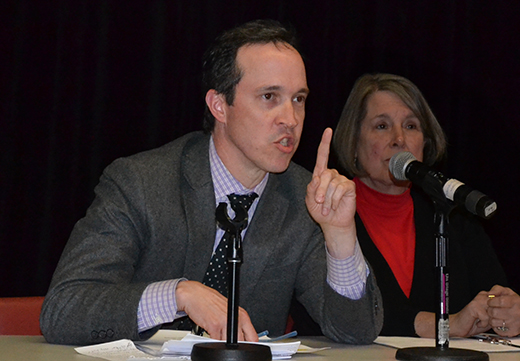After allegations of state interference, LICH panelists get extra time to reconsider hospital bids

Attorney Jim Walden. Photo by Rob Abruzzese
The Long Island College Hospital (LICH) saga continues: A panel rating the bids for the Cobble Hill hospital has been told to ignore some unauthorized last-minute instructions by SUNY and DOH, and head back into sequestration.
After attorneys for LICH supporters raised hell on Wednesday about alleged interference by SUNY and the state Department of Health in the voting process, the parties hashed out an agreement to extend the deadline to give panelists a chance to reevaluate the proposals.
Panelists were supposed to submit their votes on Wednesday, March 26, at 3 p.m. The new deadline is Monday, March 31 at 5 p.m. Court approval of this extension is still necessary.
